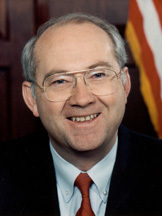A Quote by David Blankenhorn
The most urgent domestic challenge facing the United States at the close of the 20th century is the re-creation of fatherhood as a social role for men.
Related Quotes
The most important domestic challenge facing the U.S. at the close of the twentieth century is the re-creation of fatherhood as avital social role for men. At stake is nothing less than the success of the American experiment. For unless we reverse the trend of fatherlessness, no other set of accomplishments--not economic growth or prison construction or welfare reform or better schools--will succeed in arresting the decline of child well-being and the spread of male violence. To tolerate the trend of fatherlessness is to accept the inevitability of continued social recession.
Defining and celebrating the New Father are by far the most popular ideas in our contemporary discourse on fatherhood. Father as close and nurturing, not distant and authoritarian. Fatherhood as more than bread winning. Fatherhood as new-and-improved masculinity. Fathers unafraid of feelings. Fathers without sexism. Fatherhood as fifty-fifty parenthood, undistorted by arbitrary gender divisions or stifling social roles.
I think certain periods of history don't get dealt with because I think historians, and it's their job, but they look back and look for patterns. They look for sequences and they look for reasons, and certain periods of history don't fit with the general pattern of 1500 to the 20th century, during which there's the creation of the United States. At this time of 1814, two nations who would eventually become close allies were at war with each other, so it doesn't quite fit.
To equate Vladimir Putin and the United States of America, as Donald Trump was asked, you know, I guess it was Bill O'Reilly who said, "But Putin is a killer." And he basically said, "So are we." That moral equivalency is a contradiction of everything the United States has ever stood for in the 20th and 21st century.

































